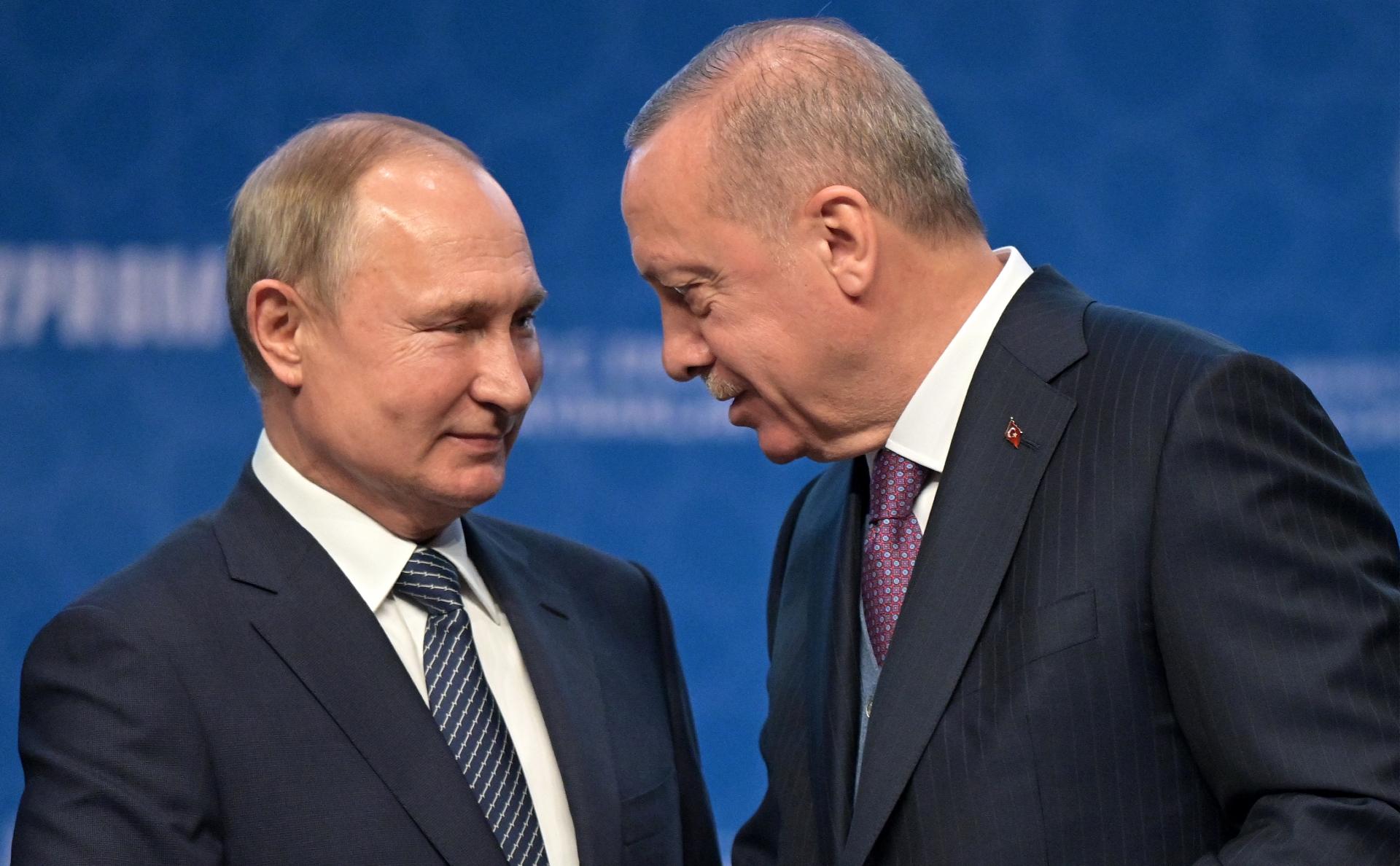Balancing global alliances, economic opportunities Türkiye's BRICS aspirations
The Turkish government has expressed its desire to join BRICS. As reported by the South China Morning Post, Turkish Foreign Minister Hakan Fidan said during his visit to China. "Of course, we would like to become a member of BRICS. Let's see how things go this year,” the minister told an event on the Center for China and Globalization held in Beijing.
It is not the first time Türkiye’s desire to become a BRICS member has been voiced. Back in 2018, President Recep Tayyip Erdogan said so and even suggested renaming the association to BRICST. Turkish newspaper Hürriyet Daily News reported at the time that the Turkish president urged the leaders of BRICS (which includes Brazil, Russia, India, China and South Africa) to let Türkiye join the association. “I said if you take us into this platform, it will bear the name BRICST,” Erdogan told reporters in Johannesburg on July 27, 2018, not failing to note the positive reaction of BRICS member countries to Ankara's proposal.
By the way, Türkiye was supported by China more than any other country at that time, which did not go unnoticed by the Turkish leader. "Especially China said that it is in favor of expansion. I saw that they are considering the participation of other countries in this platform. They are not against it,” the Turkish president emphasized.
And last September, China's ambassador to Ankara openly stated that China would support Türkiye's candidacy in BRICS if Ankara applied to join the organization.
Along with China, Ankara's BRICS initiative is also supported by Russia. Kremlin spokesman Dmitry Peskov, reiterating Moscow's positive stance, said Russia welcomes the Turkish authorities' interest in joining BRICS.
“We certainly all welcome the increased interest in BRICS from our neighbors, including such important partners as Türkiye,” Peskov said, noting that the Turkish initiative will be on the agenda of the upcoming BRICS summit. The BRICS summit at the level of heads of state will be held in October 2024 in Kazan, and a meeting of sherpas (trustees) and foreign ministers (in the BRICS+ format) will be held in Nizhny Novgorod on June 10-11 to discuss the Turkish issue.

And, most likely, Türkiye has a real chance to join this organization, especially against the backdrop of Russia's and China's support. At the same time, it is appropriate to ask the question: why did one of the leading NATO countries decide to join the anti-Western BRICS? To begin with, the Turkish authorities call Türkiye's accession to BRICS a good alternative to the EU, for which Türkiye has been a candidate since 1999.
Last September, President Erdogan said that Türkiye's decision to join the EU would be welcomed, but Türkiye considers itself a self-sufficient country and does not need help or support from Europe. "We have always been a self-sufficient country. We have never needed and do not need any help or support from the EU,” the Turkish president emphasized, putting it as a reproach to Brussels that Ankara has been standing at the door of the European community for so many years.
Earlier this year, Turkish Foreign Minister Hakan Fidan said that Ankara was not going to wait to be admitted to the European Union and would look for other “historical paths”. In other words, Ankara has made it clear to Europe that it does not intend to “wait by the sea for the weather” for the next decades, but will give preference to other international formats.
And it seems that Türkiye's current activity around joining the BRICS suggests that Ankara is ready to start the practical realization of the stated goal. And this is one possible answer to the question of why Türkiye decided to become part of BRICS. Ankara makes it clear to Europe that it is not Türkiye, but the European Union that loses by closing its doors to it. This is first of all.
Secondly, there is no doubt that Türkiye's entry into BRICS will further increase the already significant international authority of the Turkish state in regional politics and in the system of international relations in general.

Thirdly, full participation in BRICS is beneficial not only for Türkiye, but also for the organization itself, as it raises the status of this format and can significantly strengthen the organization at the global level.
Fourthly, Türkiye and all BRICS countries benefit economically from joining BRICS by expanding trade ties. Bloomberg estimates that BRICS countries made a comparable contribution to global economic growth in 2020. As a consequence, by 2028, the BRICS countries will account for 35 per cent of the global economy.
This is also logical, as BRICS are large and capacious markets, where Turkish agricultural products, construction materials and textiles will flow in large volumes if Türkiye joins the association. According to economists, this promises Türkiye increased investment and access to new markets.
However, along with the economic bonuses of joining BRICS, Türkiye risks facing negative reactions from the United States and NATO, which could increase tensions between Ankara and its allies. However, given the flexible policy of the Turkish state, it is possible that Ankara will be able to use its position to strengthen its own influence, including within the North Atlantic Alliance.

Talking to Caliber.Az, Turkish political scientist and historian Mehmet Perinçek said that Türkiye's accession to BRICS is necessary for the following reasons.
"Firstly, Türkiye has serious political problems with the Western world. The US and NATO countries support the PKK terrorist organization, train, arm terrorists. Therefore, BRICS is an opportunity for Türkiye to balance the threats from the West. At the same time, the country's accession to BRICS should not be an instrument of trade with the West, but a strategic decision of the state.
Secondly, the hegemony of the dollar is a serious problem for the Turkish national economy, which enables Washington to conduct destructive financial operations and blackmail policies against Ankara. Therefore, only in cooperation with Eurasian countries can Türkiye minimize the threats to the Turkish economy.
And the real platform for this can be not only the BRICS, but also the SCO, as well as the OTS, which are considered international structures of the new world order. And since the center of the world economy is shifting from the West to the East, where large amounts of energy resources are concentrated, by joining BRICS, Ankara will be able to ensure its economic security and cope with the crisis,” Perinçek noted.








